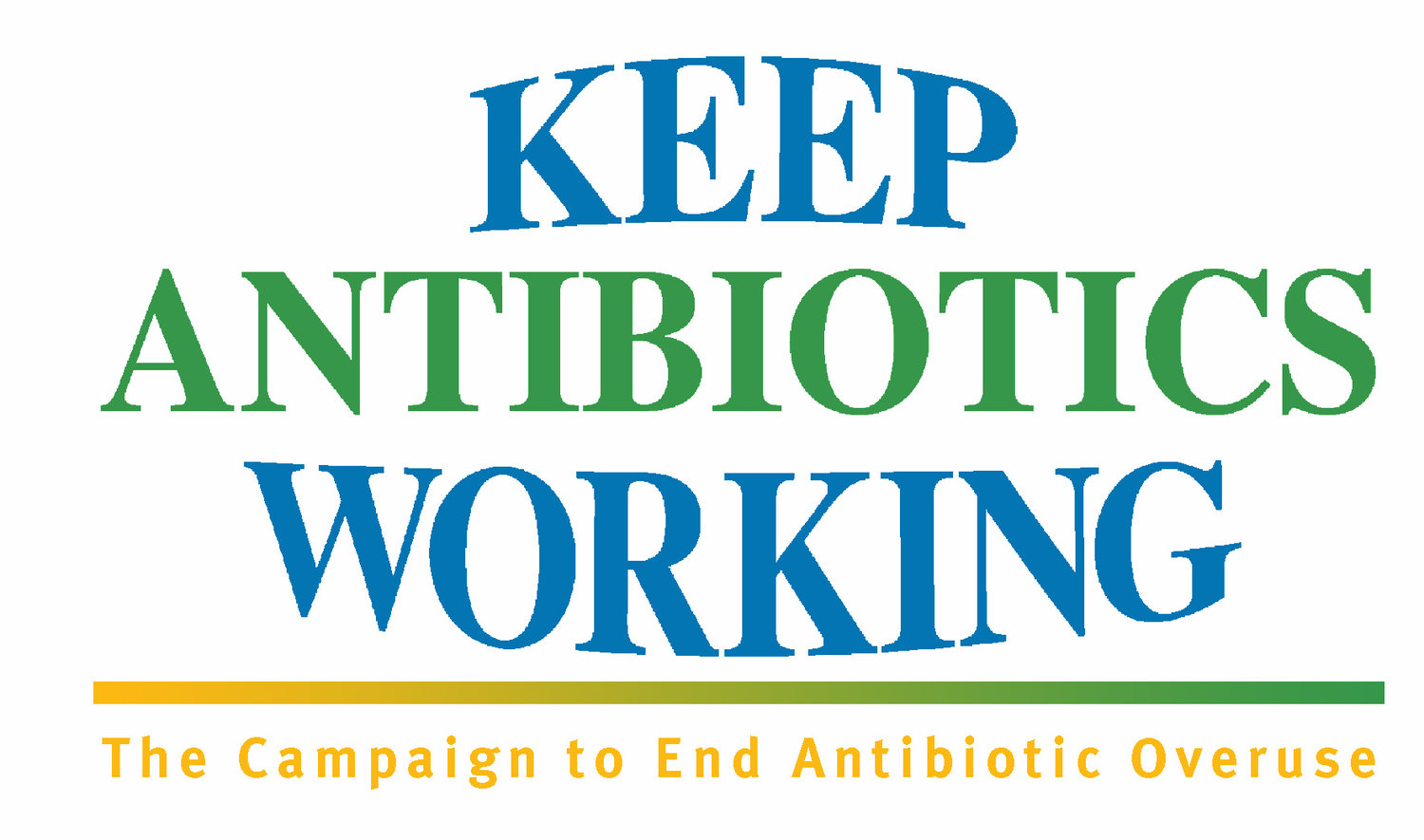
All blog posts are the sole opinion of the author and do not necessarily reflect the official position of Keep Antibiotics Working or Food Animal Concerns Trust.

The FDA Needs to Move Forward With Protecting Medically Important Antibiotics
MADELEINE KLEVEN & STEVE ROACH, SAFE & HEALTHY FOOD PROGRAM ASSOCIATE & DIRECTOR, FOOD ANIMAL CONCERNS TRUST
A lot of different chemicals and drugs are used in industrial animal agriculture as the meat industry is highly chemically dependent. Medically important antibiotics are one group of drugs that the meat industry relies upon and these can create a real problem when overused. Medically important antibiotics are antibiotics that are used in both animal agriculture and human medicine. When resistance develops to these drugs it is dangerous because they are used to treat everything from eye infections and burns to critical respiratory diseases and surgical infections in people. Currently, we have the opportunity to tell the FDA that we need to preserve these medically important antibiotics for human and animal health.

Looks like McDonald’s New Responsible Use Targets Are Not Responsible At All
STEVE ROACH, SAFE & HEALTHY FOOD PROGRAM DIRECTOR, FOOD ANIMAL CONCERNS TRUST
McDonald’s has been an industry leader among fast food chains on reducing the overuse of antibiotics in its meat supply, but now it seems the company is leading in the wrong direction. The company missed an internal deadline to set antibiotic use reduction targets for its global beef supply by 2020. Then last year, it stopped talking about reduction targets and switched to talking about “responsible use”. Finally, at the end of last year, McDonald’s made public what it is calling responsible use targets. It is not clear at all whether or not these targets are responsible.
A Case for Changing Your Grocery Habits in the New Year
STEVE ROACH, SAFE & HEALTHY FOOD PROGRAM DIRECTOR, FOOD ANIMAL CONCERNS TRUST
We often look at the new year as an opportunity to reevaluate how we’re caring for ourselves. Food Animal Concerns Trust recommends a step you might not have thought of but could make a huge difference to your personal health and that of everyone you love: changing the meat you choose for your dinner table.
FDA’s Antibiotic Stewardship Plan is Failing
DAVID WALLINGA, MD, NRDC SENIOR HEALTH OFFICER, HEALTHY PEOPLE & THRIVING COMMUNITIES. DR. WALLINGA AND NRDC HAVE KINDLY ALLOWED US TO REPOST THIS ARTICLE FROM THE ORIGINAL ON THE NRDC BLOG.
Livestock Rates of Use Persist Above 2017 Rates for Fourth Straight Year
A just-released FDA report, the latest in a series summarizing livestock antibiotic sales since 2009, shows that the agency’s approach to addressing the U.S livestock sector’s high-intensity use of medically important antibiotics is failing. Since 2017, at which point a veterinary directive was required to mix these antibiotics into animal feed and their use in healthy animals for the purpose of growth promotion had finally been made illegal, livestock producers have been using these precious medicines more intensively, not less.
Superbugs in Stock: Grocery Chains are Not Giving Enough to Stop Antibiotic Overuse.
By Steve Roach, Safe and Healthy Food Program Director.
I attended a talk this week by Food and Drug Administration Commissioner Califf. When I asked him about antibiotic resistance related to animal agriculture, he said this was an issue where everyone needs to give a little bit. He mentioned doctors, drug makers, and farmers as needing to be part of the solution. People that sell food also need to do their part. That’s why Food Animal Concerns Trust (FACT) and some of our allies in the Antibiotics Off the Menu Coalition decided to score the twelve largest U.S. grocery chains on their policies on antibiotic use by their meat suppliers.
Calling on the USDA to Stop Antibiotic Overuse
MADELEINE KLEVEN, SAFE AND HEALTHY FOOD PROGRAM ASSOCIATE, FOOD ANIMAL CONCERNS TRUST
Antibiotic resistance is a leading cause of death worldwide and is rapidly spreading throughout the world. In the United States nearly 3 million Americans get sick with an antibiotic resistant infection, and 160,000 people die every year. As antibiotics continue to be overused, especially in animal agriculture and industrial farming, resistant bacterial strains continue to develop and threaten the lives of millions. It is time the FDA, the USDA and other government agencies take this health threat seriously, and set national targets for reducing the use of antibiotics in agriculture.
McDonald's Drops Its Commitment to Reduce Use in Its Global Beef Supply
STEVE ROACH, SAFE & HEALTHY FOOD PROGRAM DIRECTOR, FOOD ANIMAL CONCERNS TRUST
Why “responsible use” is not a good alternative for “reducing use” when it comes to antibiotics and resistant superbugs.
McDonald’s recently dropped its commitment to establish “reduction targets for medically important antibiotics" which was made in 2018 and replaced it with a new commitment to establish “targets for the responsible use of medically important antibiotics" as its policy for beef served in its restaurants. This is a major setback for the fight against antibiotic resistance. Reduction targets are important because the level of antibiotic use is what is driving the spread of antibiotic resistant superbugs that are creating the antibiotic resistance crisis.
“This setback can and must be temporary”
CDC on the lost progress combating antibiotic resistance due to the COVID-19 pandemic. For FDA, there are no goals so no setbacks.
STEVE ROACH, SAFE & HEALTHY FOOD PROGRAM DIRECTOR, FOOD ANIMAL CONCERNS TRUST
In addition to the terrible burden on health caused by the COVID-19 pandemic directly, the pandemic also set back efforts to address the public health crisis of antibiotic resistance.
FDA Just Gave Itself a B+ on its Efforts to Fight Antibiotic Resistance
A “D-” WOULD BE A MORE REALISTIC GRADE BUT THE AGENCY STILL HAS ANOTHER YEAR TO CATCH UP.
STEVE ROACH, SAFE & HEALTHY FOOD PROGRAM DIRECTOR, FOOD ANIMAL CONCERNS TRUST
FDA just gave itself a B+ on the first phase of a plan to combat resistance that results from antibiotic use in animals. FACT thinks a “D-” would be a more appropriate grade. The plan was released in September 2018 and the first phase was completed last year.
The plan itself was not very ambitious to start with and included very few actions that were likely to reduce the antibiotic overuse that is creating the antibiotic resistance crisis. One thing clearly missing from the plan was a target for reduction in antibiotic use. However, the plan did include a few items that are absolutely needed.
Preventing or Profiting? How Factory Farms Disguise Antibiotic Misuse as Care
STEVE ROACH, SAFE & HEALTHY FOOD PROGRAM DIRECTOR, FOOD ANIMAL CONCERNS TRUST
A dangerous practice has become commonplace in industrial animal production – the routine misuse of antibiotics to prevent ailments that result from the crowded, dirty conditions in which animals are raised. This overuse is not only unnecessary with the humane treatment of farm animals, but harmful to human health. That is why Food Animal Concerns Trust (FACT) and the Keep Antibiotics Working (KAW) coalition is calling for a 50% reduction in the use of antibiotics in food animals by 2025.

Regenerative Agriculture: Animals and the Broader View
STEVE ROACH, SAFE & HEALTHY FOOD PROGRAM DIRECTOR, FOOD ANIMAL CONCERNS TRUST
You may have heard of regenerative agriculture. It has been getting a lot of attention lately as a potential solution to climate change. There is no agreed upon definition of regenerative agriculture, but most often it refers to agricultural practices that improve soil health and increase the amount of carbon stored in the soil. For crop farmers, regenerative agriculture may refer to planting cover crops and minimal tillage. Right now, there is a lot of money, both private and public, for research into the carbon storage potential of agricultural land or to promote these practices.
